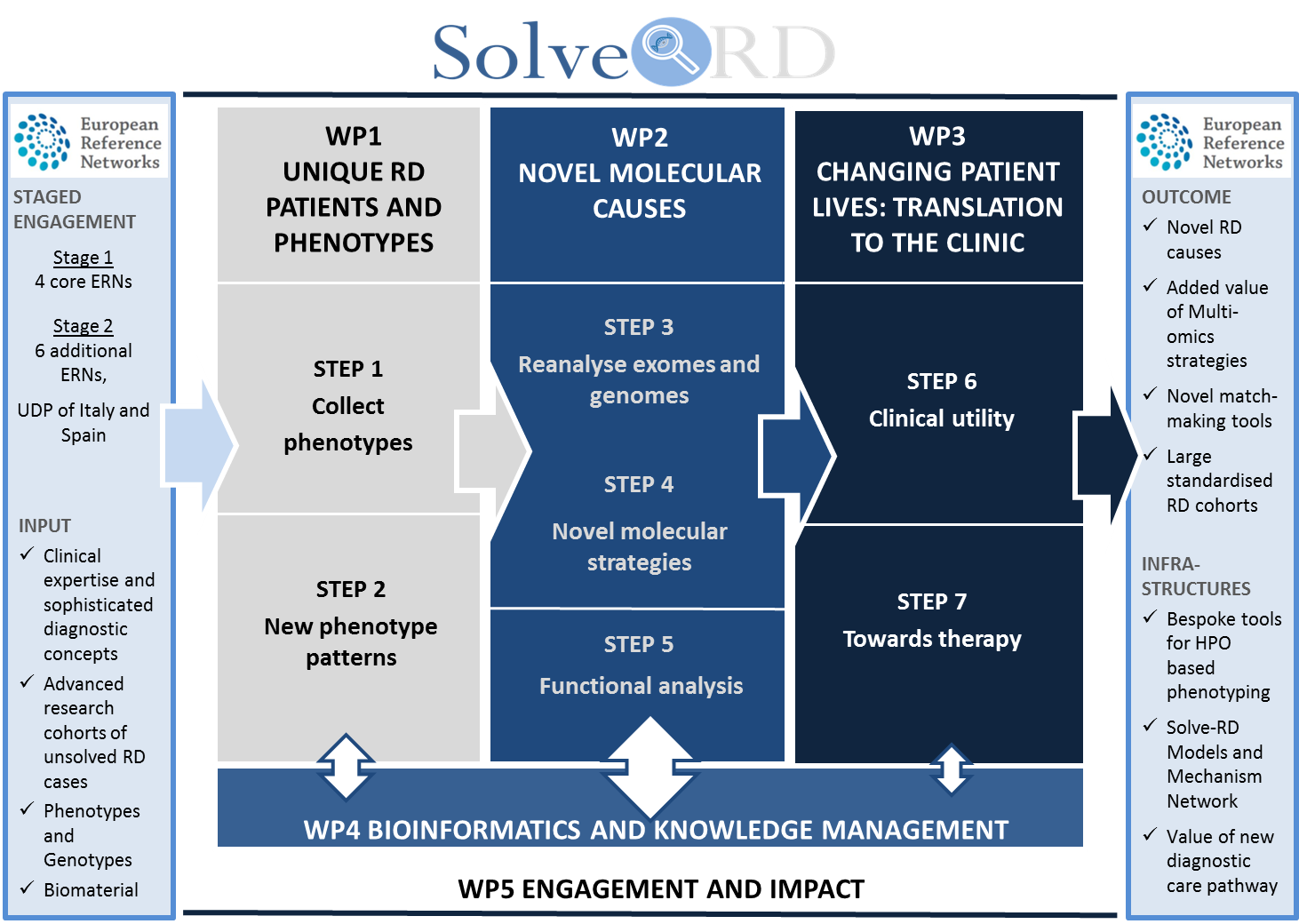The current diagnostic and subsequent therapeutic management of rare diseases is still highly unsatisfactory for a large proportion of rare disease patients – the unsolved RD cases. For these unsolved rare diseases, we are unable to explain the etiology responsible for the disease phenotype, predict the individual disease risk and/or rate of disease progression, and/or quantitate the risk of relatives to develop the same disorder.
To make substantial progress in diagnosis of unsolved rare diseases and to cope with the main challenges of diagnostic discovery and diagnosis-adapted patient management, Solve-RD brings together i) the most advanced and most useful diagnostic RD research infrastructure, ii) a critical mass of RD diagnostic discovery expertise stemming mainly from involved ERNs and iii) unique research cohorts.
Solve-RD identified three main challenges and will deliver seven implementation steps to address these challenges in work packages 1-3:
Challenge 1: Accessibility of unsolved rare disease cohorts with comprehensive genetic and phenotypic data → WP1
Challenge 2: New and improved approaches for the discovery of novel molecular causes → WP2
Challenge 3: Translate discoveries to patients’ live and clinical practice → WP3
Bioinformatics support and knowledge management in the Solve-RD project (→ WP4) is focused on supporting the core goals of the project and is closely interconnected with WPs 1-3.

